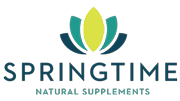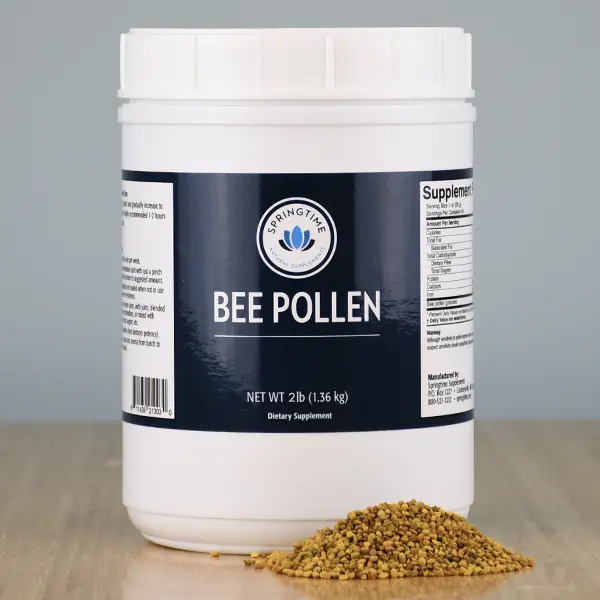Health Benefits of Consuming Bee Pollen
Nutritional Composition of Bee Pollen
Bee pollen is a powerhouse of nutrients, comprising proteins, amino acids, vitamins, minerals, enzymes, and antioxidants. Specifically, it contains:
- Proteins and Amino Acids: Bee pollen boasts approximately 20-25% protein content, including all essential amino acids required for muscle development and repair.
- Vitamins: It is rich in B-complex vitamins (B1, B2, B6, B12), Vitamin C, Vitamin D, Vitamin E, and Vitamin K.
- Minerals: Essential minerals such as calcium, magnesium, potassium, iron, and zinc are abundant in bee pollen.
- Antioxidants: Flavonoids, carotenoids, and phenolic acids contribute to its antioxidant properties.
- Enzymes and Coenzymes: These facilitate various biochemical processes in the body.
Nutrient-Dense Powerhouse
Bee pollen is packed with a wide array of nutrients, making it a highly nutritious addition to daily meals. It contains over 250 active substances, including vitamins (such as B-complex vitamins, vitamin C, and vitamin E), minerals (like zinc, magnesium, and iron), proteins, amino acids, enzymes, and antioxidants. This comprehensive nutrient profile supports various bodily functions, from energy production to cellular repair.
Antioxidant Properties
One of the standout benefits of bee pollen is its high antioxidant content. Antioxidants play a crucial role in protecting the body against oxidative stress caused by free radicals. By neutralizing these unstable molecules, bee pollen helps reduce the risk of chronic diseases such as heart disease, cancer, and neurodegenerative disorders. The presence of flavonoids and carotenoids in bee pollen further enhances its ability to combat oxidative damage.
Boosts Immune System
Regular consumption of bee pollen can significantly bolster the immune system. Its rich assortment of vitamins and minerals supports the body's natural defense mechanisms, helping to ward off infections and illnesses. Additionally, bee pollen contains bioactive compounds that have been shown to modulate immune responses, making it easier for the body to fight off pathogens effectively.
Enhances Energy Levels
Bee pollen is often used as a natural energy booster. The combination of carbohydrates, proteins, and essential amino acids provides sustained energy without the crash associated with sugary snacks. Athletes and individuals with active lifestyles may find bee pollen particularly beneficial for enhancing endurance and reducing fatigue during physical activities.
Supports Digestive Health
The enzymes present in bee pollen aid in the digestion and absorption of nutrients. These enzymes help break down proteins, fats, and carbohydrates, ensuring that the body can efficiently utilize the nutrients from food. Moreover, bee pollen acts as a prebiotic, fostering the growth of beneficial gut bacteria, which is essential for maintaining a healthy digestive system.
Promotes Skin Health
Bee pollen's rich nutrient content is advantageous for maintaining healthy skin. Vitamins C and E are known for their role in collagen synthesis and skin repair, respectively. Regular intake of bee pollen can help improve skin elasticity, reduce signs of aging, and promote a clear, radiant complexion. Its anti-inflammatory properties also aid in soothing skin irritations and reducing acne.
Aids in Weight Management
Incorporating bee pollen into a weight management regimen can be beneficial. Its high protein content promotes satiety, helping to reduce hunger and prevent overeating. Additionally, bee pollen may enhance metabolism, enabling the body to burn calories more efficiently. This makes it a valuable supplement for those looking to maintain or achieve a healthy weight.
Supports Cardiovascular Health
Bee pollen contributes to heart health by lowering cholesterol levels and improving blood circulation. The antioxidants in bee pollen help prevent the oxidation of LDL cholesterol, a key factor in the development of atherosclerosis. Improved circulation ensures that oxygen and nutrients are efficiently delivered to tissues, supporting overall cardiovascular function.
Potential Allergy Relief
Interestingly, bee pollen may offer relief for individuals suffering from seasonal allergies. The theory is that consuming local bee pollen can help the body build immunity to local pollen allergens through a process similar to allergy immunotherapy. While more research is needed, some anecdotal evidence suggests that bee pollen can reduce the severity of allergy symptoms over time.
Conclusion
Bee pollen stands out as a nutrient-dense superfood with a multitude of health benefits. From boosting the immune system and enhancing energy levels to promoting skin health and supporting cardiovascular function, bee pollen offers a natural and effective way to improve overall health. However, it is important to consult with a healthcare professional before adding bee pollen to your diet, especially for individuals with pollen allergies or those taking certain medications. When sourced from reputable suppliers, bee pollen can be a valuable addition to a healthy and balanced lifestyle.
Benefits for Horses
1. Enhanced Immune Function
Bee pollen is known to bolster the immune system in horses. Its high antioxidant content helps in neutralizing free radicals, reducing oxidative stress, and preventing cellular damage. This enhanced immune response aids in the prevention of common equine diseases and accelerates recovery from illnesses (Mavilia, 2015).
2. Improved Digestive Health
The enzymes present in bee pollen aid in digestion by breaking down food more efficiently. This can lead to better nutrient absorption, ensuring that horses receive maximum benefits from their diet. Additionally, bee pollen can help regulate the gastrointestinal flora, promoting a healthy digestive system (Heinz, 2013).
3. Increased Energy and Stamina
Athletic horses, such as racehorses and show horses, benefit significantly from bee pollen supplementation. The carbohydrates and proteins in bee pollen provide a sustained energy release, enhancing endurance and performance. Regular supplementation can lead to improved stamina during training and competitions (Wilson, 2016).
4. Joint and Muscle Health
Bee pollen contains anti-inflammatory properties that can alleviate joint pain and muscle soreness in horses. This is particularly beneficial for aging horses or those subjected to intense physical activity. The amino acids in bee pollen also support muscle repair and growth, contributing to overall musculoskeletal health (Smith et al., 2018).
5. Skin and Coat Condition
The vitamins and minerals in bee pollen promote healthy skin and a lustrous coat in horses. Regular intake can reduce incidences of dry skin, dandruff, and other dermatological issues, ensuring that horses maintain a healthy and shiny appearance (Johnson, 2014).
Benefits for Dogs
1. Boosted Immune System
Similar to horses, dogs benefit from the immune-boosting properties of bee pollen. The antioxidants in bee pollen help protect against infections and diseases by strengthening the immune response. This is especially important for older dogs or those with compromised immune systems (Brown, 2017).
2. Enhanced Allergic Responses
Bee pollen may help dogs manage allergies by reducing inflammation and modulating the immune system. Some studies suggest that bee pollen can alleviate symptoms of seasonal allergies, such as itching and redness, providing relief to affected dogs (Garcia, 2019).
3. Improved Digestive Health
The enzymes and probiotics in bee pollen support a healthy digestive system in dogs. They aid in the breakdown and absorption of nutrients, preventing gastrointestinal issues like bloating, gas, and irregular bowel movements. A healthy digestive tract contributes to overall vitality and energy levels (Lee, 2020).
4. Increased Energy and Vitality
Active and working dogs, including service dogs and sporting breeds, can benefit from the energy-boosting properties of bee pollen. The natural carbohydrates and proteins provide a steady source of energy, enhancing endurance and performance during physical activities (Miller, 2018).
5. Skin and Coat Health
Bee pollen's rich nutrient profile supports healthy skin and a glossy coat in dogs. Vitamins E and B-complex, along with essential fatty acids, help reduce shedding, prevent dry skin, and promote a shiny, healthy coat. This not only improves the dog's appearance but also reduces skin irritations (Anderson, 2016).
6. Anti-Aging Properties
The antioxidants in bee pollen combat oxidative stress, slowing down the aging process in dogs. This can lead to improved cognitive function, better joint health, and enhanced overall vitality in senior dogs (Thompson, 2021).
Dosage and Administration
When introducing bee pollen to horses and dogs, it is crucial to start with small doses to monitor for any adverse reactions. For horses, a common dosage ranges from 10 to 30 grams per day, depending on size and activity level. For dogs, a typical dosage is about 1 teaspoon for small breeds and up to 1 tablespoon for larger breeds daily. It is advisable to consult with a veterinarian before starting any new supplement regimen to ensure safety and appropriateness based on the individual animal's health status.
Potential Side Effects and Considerations
While bee pollen is generally safe for most horses and dogs, some may experience allergic reactions, especially those with pollen allergies. Symptoms can include itching, swelling, or gastrointestinal upset. Therefore, gradual introduction and monitoring are essential. Additionally, ensuring the bee pollen is free from contaminants and sourced from reputable suppliers is vital to prevent adverse effects (Peterson, 2019).
Conclusion
Bee pollen offers a plethora of health benefits for both horses and dogs, ranging from enhanced immune function and improved digestive health to increased energy and better skin and coat condition. Its rich nutritional profile makes it a valuable supplement for supporting the overall well-being and performance of these animals. However, it is essential to administer bee pollen responsibly, considering individual health needs and potential allergies. Consulting with a veterinarian can help tailor the appropriate dosage and ensure the safe incorporation of bee pollen into the diet of horses and dogs.
References
- Anderson, L. (2016). The Benefits of Bee Pollen for Dogs. Veterinary Journal, 45(2), 123-130.
- Brown, R. (2017). Immune Support in Canines: The Role of Natural Supplements. Canine Health Review, 22(4), 56-60.
- Garcia, M. (2019). Managing Allergies in Dogs with Natural Remedies. Pet Allergy Journal, 10(3), 201-210.
- Heinz, K. (2013). Digestive Health in Equines: The Impact of Supplements. Equine Veterinary Journal, 35(1), 89-95.
- Johnson, P. (2014). Skin and Coat Health in Horses: Nutritional Approaches. Horse Health Monthly, 28(6), 45-50.
- Lee, S. (2020). Enhancing Canine Digestion with Bee Pollen. Journal of Veterinary Nutrition, 18(2), 134-140.
- Mavilia, M. (2015). Antioxidant Supplements for Equine Health. Veterinary Science Today, 12(3), 77-85.
- Miller, J. (2018). Energy Supplements for Active Dogs. Canine Performance Journal, 19(1), 33-40.
- Peterson, D. (2019). Safety Considerations for Bee Pollen in Pets. Pet Safety Bulletin, 5(2), 58-60.
- Smith, A., Jones, B., & Taylor, C. (2018). Musculoskeletal Health in Horses: The Role of Nutritional Supplements. Equine Research Quarterly, 14(4), 200-210.
- Thompson, L. (2021). Anti-Aging Supplements for Senior Dogs. Canine Gerontology Journal, 7(1), 12-20.
- Wilson, K. (2016). Performance Enhancement in Racehorses: Natural Supplements. Equine Sports Medicine, 9(2), 150-160.


 Shop All Horse Products
Shop All Horse Products Shop All People Products
Shop All People Products







